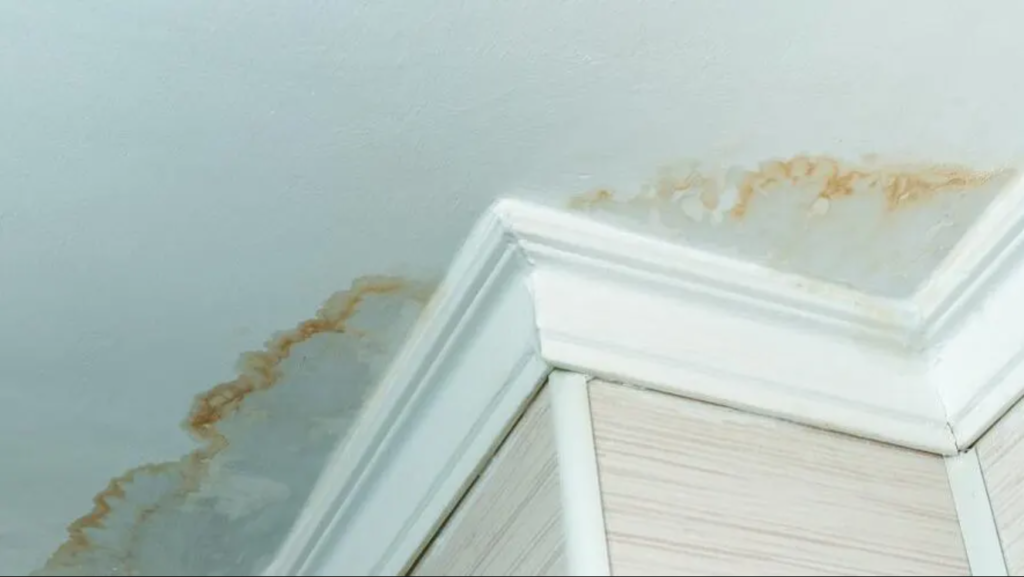Water is one of the most essential elements of life, but when it invades your home, it can wreak havoc. A small leak might initially seem harmless, but unchecked water damage can lead to significant issues that impact your property’s value, structural integrity, and even your health. Let’s break down how water damage can cause trouble in your home when left unaddressed.
Structural Damage
Water is relentless when it comes to weakening the materials in your home. Over time, even small amounts of water can penetrate the foundation, walls, and floors, causing materials like wood and drywall to soften, warp, and rot. This can result in sagging ceilings and walls, as water trapped in these areas causes them to bow or collapse, leading to dangerous structural instability. In addition, water exposure can weaken your foundation, creating cracks that threaten the safety of your entire house. Even the roof is not immune, as leaks can deteriorate the underlying wood, which may lead to costly repairs or, in severe cases, a complete roof replacement.
Mold and Mildew Growth
Mold growth is one of the most common and concerning side effects of water damage. Mold thrives in damp environments, and once it starts growing, it spreads quickly. Unchecked water damage creates the perfect breeding ground for mold, significantly affecting indoor air quality as mold spores travel through your home’s ventilation system. This reduction in air quality can cause respiratory issues for you and your family. Mold exposure can also exacerbate health conditions such as asthma and allergies, especially in children and the elderly. Beyond health concerns, mold can damage your belongings, from upholstery and carpets to irreplaceable items like photographs and books.
Electrical Hazards
When water seeps into areas with wiring, it can create significant electrical hazards. Water and electricity don’t mix, and this combination can result in dangerous outcomes. Water exposure can cause your home’s electrical systems to short-circuit, leading to malfunctions or even fires. Furthermore, water damage can ruin major appliances like washers, dryers, and refrigerators, rendering them inoperable. In some cases, damaged electrical wiring or appliances can increase the risk of fires, putting your home and family at great risk.
Decreased Property Value
Unchecked water damage can directly impact your home’s resale value. Potential buyers are often wary of homes that show signs of water damage because they understand it can lead to costly future repairs. Water stains on walls or ceilings immediately suggest hidden damage, raising red flags. The musty smell caused by mold and mildew can be a significant turn-off for buyers, as it indicates that the damage is extensive and potentially unhealthy. Structural issues such as weakened foundations or damaged floors from water exposure also make homes far less appealing, and buyers may expect a substantial discount to cover the costs of repairs.
Pest Infestation
Water-damaged areas can quickly become a hotspot for pests like termites, ants, and rodents. Damp wood is particularly attractive to termites, which can infest your home and cause further damage. Once pests invade, it can be difficult to get rid of them, and their presence can exacerbate existing structural problems. Termites and other pests often go unnoticed until the damage has already been done, adding another layer of complexity to addressing water damage.
Higher Utility Bills
Water damage can also affect the insulation in your home. Damaged insulation compromises temperature regulation, forcing your heating and cooling systems to work harder than necessary. This inefficiency results in higher energy bills and unnecessary strain on your HVAC system. Addressing water damage promptly can help preserve the efficiency of your home’s energy usage and prevent costly increases in your utility bills.
How to Prevent and Address Water Damage
To avoid the costly and dangerous consequences of unchecked water damage, being proactive is essential. Regularly inspect your home for leaks, or notify professionals like Certified Disaster Services to get the job done right. Even tiny leaks can escalate quickly, so it’s important to address small issues as soon as they are detected. Ensuring proper drainage systems around your home can help divert water away from the foundation, reducing the risk of damage. Keeping gutters and downspouts clean is another crucial step in preventing water accumulation near your home. If you notice any signs of water damage or mold, it’s essential to contact a professional immediately to assess the situation and begin repairs.
Conclusion
Water damage might start small, but its impact can be devastating if left unchecked. From structural problems to health risks and financial burdens, it’s crucial to address any signs of water damage as soon as they appear. A proactive approach can help you maintain a safe, healthy, and damage-free home, preventing the hidden dangers that water can bring.

